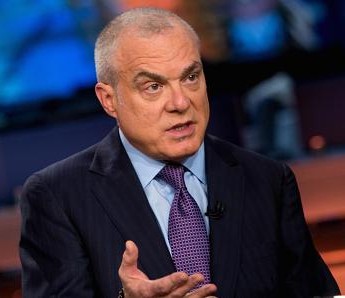Can Mindfulness Techniques Help Health Practitioners, Too?
From employer-sponsored mindfulness exercises to applications on mobile phones, the practice of mindfulness has been popularized as a method for reducing stress and focusing the mind in everyday life. “Mindfulness” is a mental state arising from training the mind to focus on the present moment; those who practice mindfulness aim to develop greater awareness of the present through unity of the body & mind. The reported benefits include reduced rumination associated with depression, reduced stress levels, greater working memory, and greater focus.

Mark Bertolini, CEO of health insurer Aetna, is one of many executives now practicing mindfulness.
Mindfulness techniques have gradually begun to be integrated into modern healthcare treatment plans, with studies indicating that mindfulness-based stress reduction (MBSR) may aid patients with pain management and improve overall well-being. Moreover, research suggests that similar techniques may aid providers as well as patients. Mirroring the increasing popularity of mindfulness techniques in the upper ranks of the business and management sector, many health networks are extolling the virtues of mindfulness for health professionals. The University of Pennsylvania Health System has even begun offering mindfulness courses for health providers.
So just how can mindfulness techniques help providers? Recent research has been dedicated to examining the potential of mindfulness to help physicians avoid “burnout,” a “state of fatigue and frustration” that often arises in health professionals due to the strain on resources inherent in the field. Burnout not only affects the quality of care practitioners provide to their patients, but also has demonstrably negative effects on the quality of life for practitioners themselves. And it’s widespread, with almost half of practicing physicians reporting at least one symptom of burnout.
One such study of mindfulness for providers explored whether mindfulness could decrease burnout in health professionals from various health fields, including physicians, nurses, psychologists, and social workers. Results indicated that continual practice of MBSR techniques, in the form of weekly two and a half hour sessions, had led to a significant improvement on work-related burnout scores.
Improving mindfulness in practitioners may also lead to concrete improvement in quality of care. The Journal of Patient Safety has indicated that preventable medical errors may be responsible for roughly 400,000 deaths per year in the United States; however, a recent paper indicated that a form of mindfulness practice could decrease the occurrence of medical errors and medication errors for nurses.
Researchers have also examined the potential of mindfulness to improve patient-doctor interactions and the patient experience as a whole. One study found that patients perceived a more positive experience overall when interacting with doctors who practiced mindfulness; patients reported greater patient-centered communication, stronger rapport-building, and higher satisfaction in both quality of care and the physicians themselves.
So far, implementation of mindfulness techniques in the health sector has been predominantly focused on patients. But this growing bevy of research indicates that exploring the use of mindfulness for providers could lead to huge benefits for practitioner’s mental states, for the care they provide and their interactions with patients, and for the overall quality of health systems.
